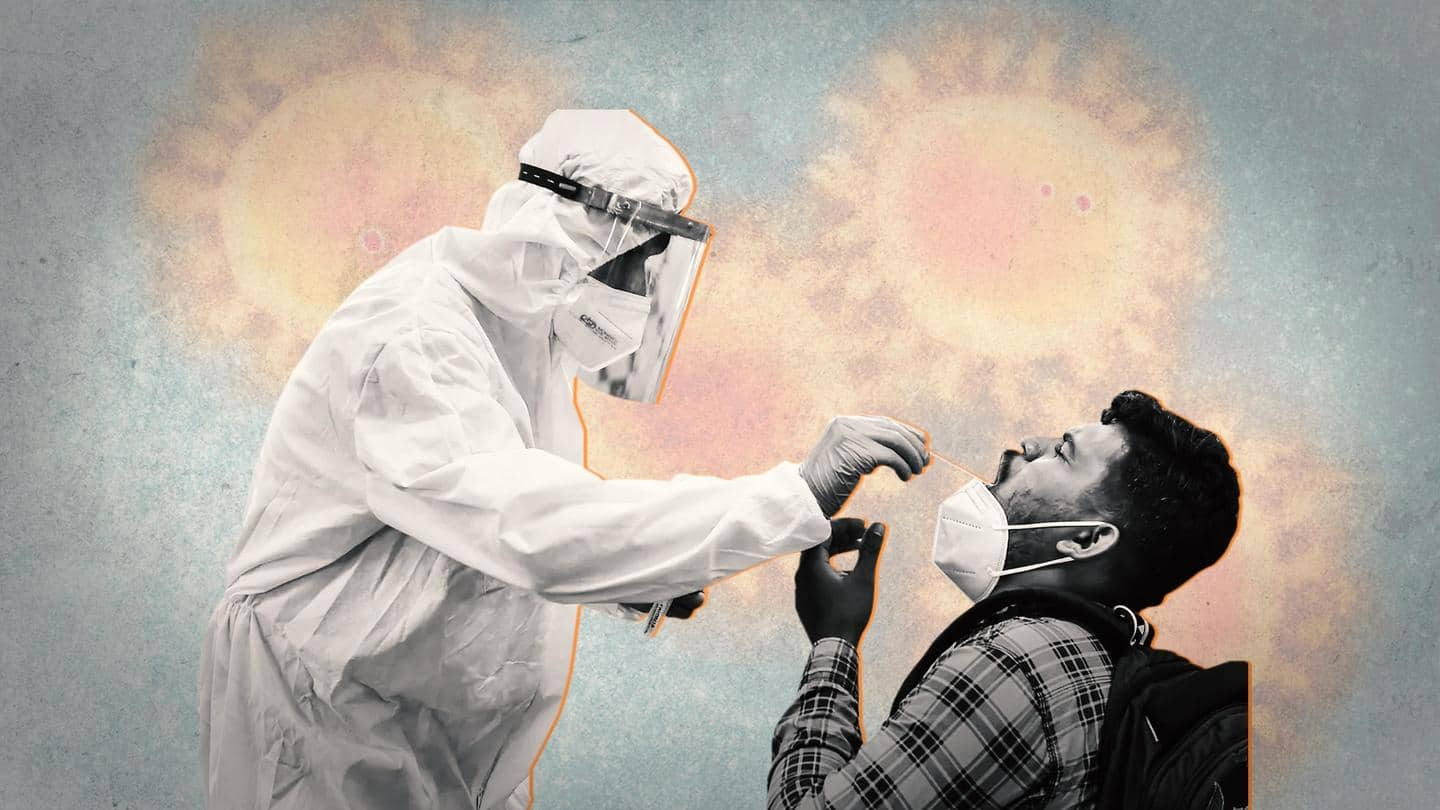
COVID-19 losing pandemic characteristics, becoming endemic in Karnataka: Experts
What's the story
Experts in Karnataka suggested that COVID-19 might have lost its pandemic characteristics and is now slipping toward an endemic phase in the state.
The observations were made in the backdrop that the state has been witnessing a decline in COVID-19 infections recently with no sign of a third wave in the near future.
For the past month, Karnataka has been reporting 500-800 daily infections.
Details
'New wave only if coronavirus mutates or new variant emerges'
Dr. MK Sudarshan, Chairperson of state COVID-19 Technical Advisory Committee, maintained that "stagnation" in new cases and a low test positivity rate (TPR) indicate that COVID-19 is reaching the endemic stage in Karnataka.
"There will be a new wave only if the novel coronavirus mutates and a new variant emerges," he told The Times of India.
The TPR is around 0.5% in Karnataka.
Information
Vigilance through aggressive genome sequencing important: Dr. Sudarshan
To keep a watch on any new mutations or coronavirus variants, Dr. Sudarshan said that it is pertinent to step up vigilance and surveillance.
"It can be done through more aggressive genomic sequencing," he added.
Reportedly, the COVID-19 Technical Advisory Committee has advised the state government to ramp up genome sequencing of test samples to track mutations of the virus.
Expert
Endemic trend witnessed across country, except 3 states: Expert
Further, noted epidemiologist Dr. T Jacob John told TOI that an endemic trend is being witnessed across India, except in three states.
These include Kerala, Mizoram, and Meghalaya. These three states are still reporting a high number of cases.
"The situation in Kerala has improved considerably, with daily cases being stable at around 12,000. So, COVID-19 is becoming endemic there too," Dr. John said.
Endemic
What does it mean if COVID-19 becomes endemic?
If COVID-19 becomes endemic, the virus will be regularly found in the local population—never fully eradicated—and disease spread will be restricted to local transmission without imported cases.
Those infected likely will no longer suffer from a severe form of the disease. It will subsequently reduce the fatality rate of the virus.
However, experts say pandemics normally have two to three waves of infections.
Concerns
Situation calls for caution, virus still around: Expert
Virologist Dr. V Ravi, nodal officer for genome sequencing in Karnataka, said the process is required to be scaled up to 10% in the current scenario.
Noting the situation calls for an "extreme caution," he said, "Vigilance and genomic sequencing needs to be increased...Although the prevailing endemic-like situation gives an impression that the virus is gone, it is still around."
Karnataka
Karnataka ramping up genome sequencing laboratories
Karnataka, at present, has four genome sequencing laboratories.
The state government has now taken steps to add six more laboratories to boost the process of genome sequencing in the state.
"We have already procured of required equipment, and the new genomic labs will be operational by this month's end," Health Commissioner Dr. KV Trilok Chandra told the publication.